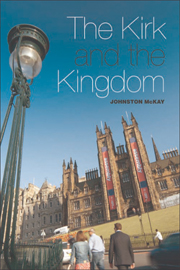4 - Divisions in the Kingdom
The Extremes of Social Theology
Published online by Cambridge University Press: 05 August 2013
Summary
The Church's duty is not to make laws, not to lobby public questions, not to pronounce on the matter of hours and wages, not to play policemen in the streets, but to make men of faith.
William Clow, 1913In 1909, the General Assemblies of the Church of Scotland and the United Free Church took the first official steps towards reunion. A conference of 210 representatives of the two Churches took place on 9 November 1909. On St Andrew's Day, exactly three weeks after the first meeting of representatives to explore the issues involved in reunion, another conference between the two Churches took place to review their social work. By then, there had already been cooperation between the Churches in the field of social work, for example in response to the welfare needs of those in Glasgow affected by the downturn in trade that year. The Conference showed some concern that there might be a duplication of work, and so it was decided that the Church of Scotland should continue to put its emphasis on practical social work, while the United Free Church should continue the interest it had already expressed in social theology and criticism. The ensuing debate about social theology in the United Free Church was conducted within diverging views about the Kingdom of God.
- Type
- Chapter
- Information
- The Kirk and the KingdomA Century of Tension in Scottish Social Theology 1830-1929, pp. 65 - 83Publisher: Edinburgh University PressPrint publication year: 2011



